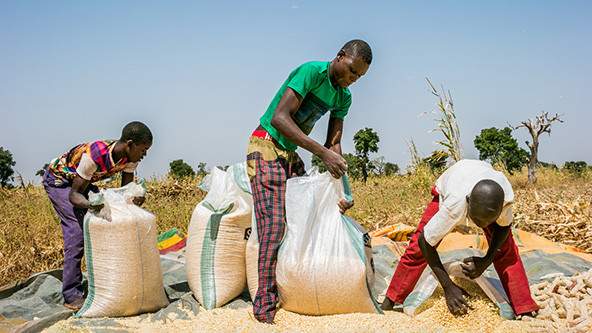Food Waste Plagues Nigerian Agricultural Sector, Expert Warns
The Nigerian agricultural sector is grappling with massive food waste, with nearly 50% of agricultural products lost along the supply chain, according to a Food and Agriculture Organisation (FAO) specialist, Ibrahim Ishaka.
During an interview with the News Agency of Nigeria (NAN) on the sidelines of an FAO-organised training in Yola, Ishaka noted that food waste poses significant challenges to the agricultural sector, impacting food security, economic growth, and environmental sustainability.
"The main reasons for these losses are technological barriers, inefficient harvesting techniques, pest infestations, and lack of access to modern farming tools, all of which contribute to losses during harvest, largely influenced by consumer behavior," Ishaka explained.
To combat post-harvest losses, Ishaka emphasized the importance of investing in post-harvest infrastructure, building community capacity, training, and empowerment programs. He also highlighted FAO initiatives promoting nutritious and sustainable practices within communities, focusing on reducing post-harvest losses, improving hygiene, and ensuring sanitation.
These initiatives, part of the "Emergency Agriculture-Based Livelihoods Sustenance for Improved Food Security" programme, targeting Borno, Adamawa, and Yobe with support from USAID, aim to combat malnutrition and food insecurity in the region.
The specialist lauded the community-led initiative, which is empowering local communities to take ownership of their food security, mentioning the establishment of FAO-supported centers that produce and distribute locally nutritious foods, such as ‘tom brown’.
"I firmly believe that the key to empowering people, particularly in the northeast region, lies in giving them the power to make informed decisions and the power to educate others," Ishaka said, expressing optimism that the training would have a long-lasting impact on participants and their communities.
The FAO expert acknowledged that food waste is not only a national problem, but also a global one, requiring collective efforts and innovative solutions to address it effectively.
In a broader context, Ishaka highlighted the need for policymakers to prioritize sustainable agricultural practices and invest in initiatives that reduce food waste, ensuring access to nutritious food for all.
